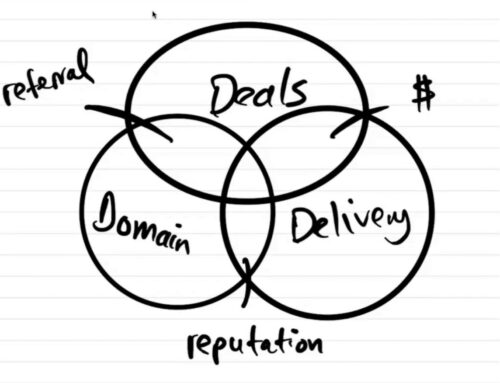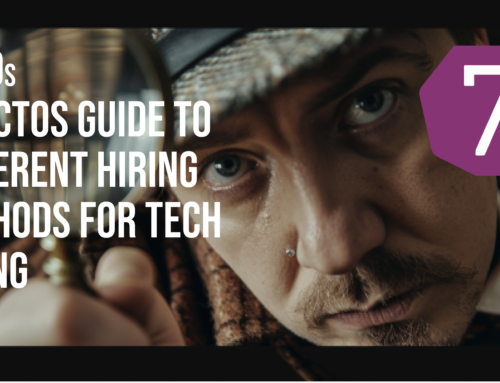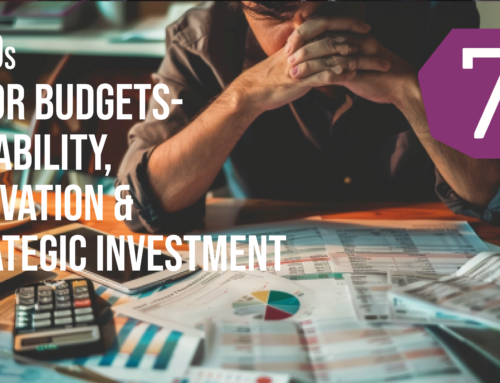Understanding AGI, AI and Machine Learning, with Alex Bates
What are the differences between AGI, AI and machine learning? Our guest today knows the answer to this question, and much more about each of these fascinating areas of tech today.
Alex Bates, CTO of MTell, joins us to share his experiences in the world of machine learning and artificial intelligence. You’ll hear us discuss the differences between artificial intelligence, artificial general intelligence, and machine learning along with what’s next in these areas. Listen in for that and more on today’s episode of CTO Studio.
In this episode, you’ll hear:
- What is process optimization?
- How did Alex acclimate to his first CTO role?
- What are the differences between AI and AGI?
- Is AGI already here?
- What was it like to be with Richard Branson on Neckar Island?
- And so much more!
We dive into the deep end immediately with a discussion on when machines will become sentient, and how will we know they have become sentient. It’s hard for us to know to truly know our fellow human beings are sentient, so how could we possibly know when a machine is?
Alex believes it boils down to how you define sentient. He thinks there are degrees of awareness of yourself as an agent and other agents with their own goals. He says it is a good question as far as humans: are we living in a simulation? I agree, no matter what I cannot get into another person’s mind. So how do I really know they are thinking? And because I cannot get into someone else’s mind nor into a machine’s algorithm so I may never know when that machine becomes sentient.
Alex says I could be in his simulation or he could be in mine or we could both in Elon Musk’s simulation (or anyone else’s for that matter). When Elon Musk says there is a .0001% chance we are NOT living in a simulation – that’s disturbing! He hopes AI will help us answer this question of whether or not we are living in a simulation, along with many other pressing issues.
The reason I bring this up is because of Alex’s work in machine learning. He has a machine learning background – with Intel he built machine learning solutions. I asked him to expand on his experiences.
Early on in his schooling he did DARPA-funded research on neural networks. And more recently with Intel he helped build a machine learning platform actually for machines. So it was designed to use machine learning to predict and prevent failure for heavy machinery industries like oil and gas and refineries. They would monitor all the sensory data coming off the machines, learn to prevent catastrophic failures and environmental oil spills.
Late in 2016 they were acquired by a company out of Boston called Aspen Tech. He stayed on for a two-year period to help integrate the company, and that time period is up in October of 2018. It’s been an amazing ride for him and now he’s looking forward to his next chapter.
He tells us Aspen Tech is the world leader in process optimization, they are big in process manufacturing and industrial industries.
Because they started this work before cloud-based machine learning solutions were available, I asked if they just rolled their own. Alex said they did. He was a key developer, and along with a lot of other developers they built their own from scratch. Early on it was before both big data and before the resurgence of data science and machine learning so everyone thought they were crazy, and he says they were crazy back then! But they got lucky and the industry changed. It became cheap to do big data then all the deep learning and platform breakthroughs happened so it worked out well for them.
The company in which they did this was built by Alex and his co-founder Paul. Alex became the CTO and together he and Paul built a team of 10 full-time employees and 10 contractors. They also had partners who did some of the service enablement so they were able to do a lot with a smaller head count.
As that was his first gig as a CTO, I wanted to know who he turned to for help as they grew their staff. They did raise some money and he had a few mentors. There wasn’t necessarily a network, but he had a handful of people he worked with. He says he did a lot of his own error correction learning – he laughingly recalls making huge mistakes and then trying to course-correct!
We go on to talk about the progression of robots, Alex says there are two axes of progress. There the axis of precision, including physical grasping behaviors like handling dishes and other fragile objects, and then there’s the social axis. He thinks advancements are being made and we’re getting closer to having robots who can do precision tasks and socially interact with us. Take Amazon’s fulfillment centers for example: humans still put a lot of the items in the boxes but they are working on that type of grasping behavior for robot and machine technologies.
Staying on the machine learning library side, I asked Alex if there are any technologies he’s playing with or prototyping with that excite him and keep him up at night. He says definitely. He’s been looking at the frameworks and machine learning as a service, and a lot of the breakthroughs in those areas. He still does a lot of coding as well.
He’s also formed a mastermind network of applied AI practitioners (primarily across San Diego and Boston). He explains it was a way to form a small group of people who have built and sold AI, the idea was to knowledge share and talk about building AGI (or artificial general intelligence) with no short-term time horizons. That group has been helpful in thinking bigger and looking at current tools and platforms. With those kinds of goals there isn’t really anything out on the commercial market that addresses these kinds of cases.
I then asked Alex if he could explain the difference between AI and AGI; tune in to hear his response as well as the definitions of 1st wave, 2nd wave and 3rd wave and his thoughts on neural lacing and brain-enhancing nanobots. Alex also tells us what has stayed with him from his time on Richard Branson’s Neckar Island. Join us to hear his insights on those fascinating topics during today’s CTO Studio episode!
Episode Resources:
Share This Story, Choose Your Platform!
Related Podcasts




